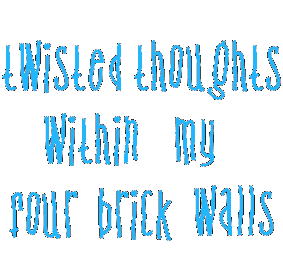S U I C I D E
"The woman is perfected. Her dead body wears the smile of accomplishment."
Sylvia Plath (1932-1963) US Poet (written one week before her suicide)
Sure, suicide is an "accomplishment" in a most twisted way. It accomplishes extinction, or to lovers of Dante, eternal damnation in the 7th circle of Hell. The greatest poet puts "violence against themselves" nearest the Abyss and we can only wonder why suicide is the express ticket to the Inferno.
Suicide facts. The World Health Organization (WHO) reports that suicide is the cause of almost half of violent deaths globally. Every year, almost one million people kill themselves. The suicide rate is highest among the elderly (85 and above) but even children can kill themselves. A 2001 US report showed that there were 272 suicides in the age group 10-14 years old. The most common means for completing suicide is by firearms followed by medications. In poorer countries, ingesting pesticides is a popular choice next to hanging. The WHO reveals that more men complete suicide but more women attempt to kill themselves. The common risk factorsin suicide are poverty and unemployment, loss of loved ones, alcohol, drug abuse and mental disorders.
Linking Depression and Suicide. The American Association of Suicidology (yes, it exsist), notes that about two thirds of people who successfully complete suicide are depressed. The risk of suicide with major depression is twenty times than that of the general population. Martha Ainsworth, writing in mentalhealth.net, dispells the myth that suicide people choose to die. She says: "Suicide is not chosen; it happens when pain exceeds resources for coping with pain." People who are also alcohol and drug dependent are more likely to commit suicide.
Warning Signs. Remember that suicidal people are shouting for help all the time. However, few recognize the grave signs of impending suicide. The AAS lists the following to watch out for:
* Extreme hoplessness
* Lack of interest in activities previously enjoyable (anhedonia)
* Panic attacks or heightened anxiety
* Sleep disruption - insomnia or too much sleep
* Talking frequently about suicide or prior history of attempt
* Irritability
* Increased use of alcohol and/or drugs
* Giving away prized possessions
* Hostility
Seek Professional Help. People who show these warning signs must be brought to a qualified counselor, psychologist, psychiatrist, or other medical doctor who can refer to the appropriate colleague. Others may want to see a religious figure like a priest, pastor, or imam. The AAS strongly suggests getting help if you, or a person you know:
* Can't stop the pain
* Can't think clearly
* Can't make decisions
* Can't see any way out
* Can't sleep or work
* Can't get out of depression
* Can't make the sadness go away
* Can't see the possibility of change
* Can't seem to get control
Get Help right away.
Suicide is Preventable. People turn to suicide as a way out of the pain. But it is not a solution because you or that person needs to be alive to know that the pain has gone away (!). Suicide is not a way out. If you've never been "pro-life" this is one such instance you have to be for it is a matter of life or death.
- Dr. Jose Pujalte, Jr., Sept.26,2004 (an orthopedic surgeon and writes for Manila Bulletin, a leading newspaper in the Philippines. You may send me a reaction here, or email him- jspujalte@broline.com)
-------------------------------------------------------------------------------------------------------------
=Reflections one cold evening=
I was about to send old newspapers away when i came across Dr. Pujalte's editorial in a local newspaper last Sept.26 and I have to say that six out of the nine signs of impending suicide are visibly present in me. One of the remaining three, I can't really decide 'coz, basically I have no prized possession anyone will have interest in. The next list (nine "can't"s), I all feel. So, telling these to you, seems that I'm asking for help from you, right? Maybe.
I do not think a lot of troubled teeneagers, in my country especially, would resort in doing such a thing as suicide. Sex, drugs and alcohol may be better for them, coz a feeling of satisfaction is defenitely reached whether used or abused. And the way how you reach that satisfaction makes you forget all the pain. Most especially at the brink of climax.
Let's just say that I was not a fan of these three mediums during my teenage years, however troubled I am. Twice did I attempt to end my breathing existence, trying to OD (over-dose) during my junior year in high school and wrist-slashing sometime during my third year in college. But at both times, I survived (obviously) and yet nobody knew. Turns out that all the weakness I feel runs through my blood, my senses, my mind and my heart. I was afraid of life, afraid of death, afraid of everyone and everything. Physically and mentally I was alone, to the point of leaving myself alone in doing it. Confusing? Any reader who went through that same ordeal, will know what I mean. Killing yourself, you have to have yourself to be there when the actual thing is taking place.
Is it giving up? No. Actually, you have to have the drive to end it all. But in my case, I have no drive to do anything. Not even in killing myself. I was weak. Although up to now, I run hundreads of scenes in my head how and when to end my life. Sometimes, I imagine it bloody, or as clean as just not waking up. I even see myself in a casket where everyone I know who will bother to show up (somewhere near 20 people) looks at. Saying a prayer or not, but surely eating peanuts and playing cards, lighting a candle or two during my funeral. And I don't see anyone sheding a tear; no one saying any regret. And if I site all of the instances, I could probably make a novel (hey, not a bad idea).
Maybe my fear of death intensified when a friend actually committed suicide and was successful. And yes, right along with the 2001 US report statistics, that more men complete suicide. Actually, he is the only person I knew who previously attempted and talked about it with me. But I did my first long before I met him. And I really do not remember if I ever confessed mine to him. Basically, my other friend (who happens to be his x-girlfriend) and I were the ones who found him hanging in his house. We panicked, of course, called for help, yelled to his neighbor-friends to help (who at the time didn't believe us and even got the nerve to walk instead of run towards his house, no wonder...). But when we got back, cut off the rope, and brought him to the hospital, it was too late. Actually he attempted several times before and every time I guess someone was there to help him get off. Maybe. Was it suppose to be us, especially me, who should find him like that? Maybe there's a reason. But after seven years, only now that I'm writing this, and the mere thought gives me the shiver. I can still clearly picture him hanging on that rope.
December, 1996. It was a big deal for us to be the ones who found him, (him, being someone popular from the music industry,) we talked about the incident a hundred times. Told the story over and over to everyone who asked, a group of people, to individuals, teachers and even the whole class. It probably helped eased the pain of losing a friend, although I could just imagine what my other friend (the "x") felt. Inspite all the commotion, deep inside me, thousands of thoughts every single day, every hour, everytime I pass by their street, lingered and remained. A hundred "what if's" and "maybe's" but never the question "why". Maybe because I know the answer to that. Now, the question is, if I did the same thing, would anyone know the answer to my "why"?
:: :: :: FACTS :: :: ::
In ancient Europe, especially during the time of the Roman Empire, suicide was an approved and sometimes an honored act. The Romans, affected by Stoic doctrine (see Stoicism), recognized many legitimate reasons for suicide. The Roman philosopher Seneca praised it as the last act of a free human. (Where he himself committed)
Stoicism:
The four cardinal virtues of the Stoic philosophy are wisdom, courage, justice, and temperance, a classification derived from the teachings of Plato. Before the rise of Christianity, Stoics recognized and advocated the brotherhood of humanity and the natural equality of all human beings.
And the rather extreme Japanese respected instances of hara-kiri, in which a shamed individual made amends for failure or desertion of duty by ritual impalement on a dagger.
In 1897 Emile Durkheim proposed that suicide is a sociological phenomenon, rather than a purely individualistic act. And today, we should view suicide in psychosocial rather than moral terms.





















































